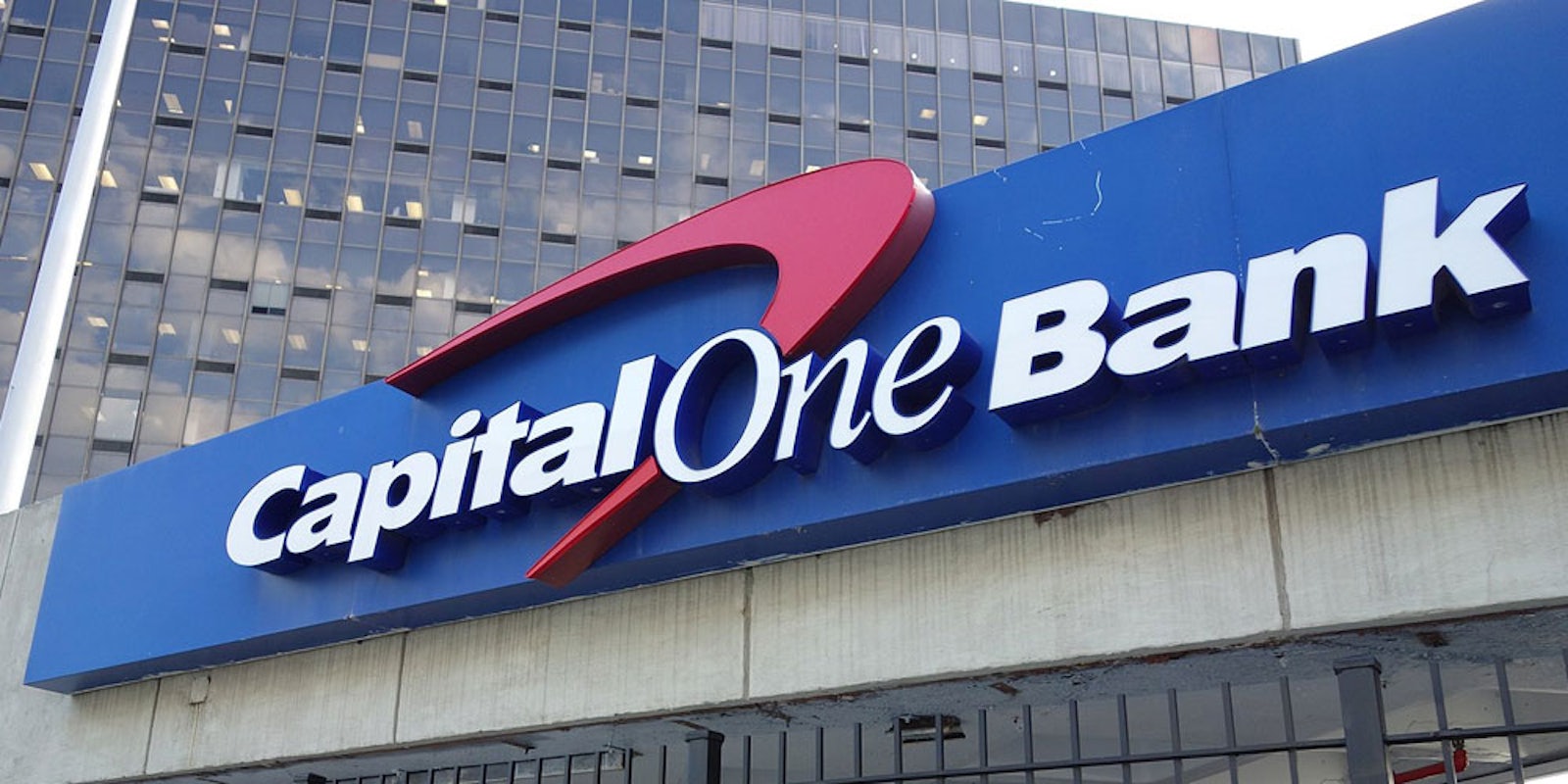Millions of people who applied for a Capital One credit card had their personal information compromised following a hack that took place in March.
The financial corporation revealed Monday that more than 100 million Americans and 6 million Canadians were affected by the hack. The pilfered data includes information like names, addresses, phone numbers, email addresses, dates of birth, and individuals’ self-reported income.
Even more troubling, 140,000 Social Security numbers were also exposed as well as 1 million Canadian Social Insurance numbers and 80,000 bank account numbers.
How to protect yourself after the Capital One hack
Capital One stated that it plans to contact all impacted customers and offer them free credit monitoring and identity protection services. But what else can you do to protect yourself? Here are several steps you can take to reduce the chances that your data is used against you.
Check your financial records
The first thing you should do is to check both your bank account and your credit card statements. Look for any suspicious activity or expenditures since the hack took place in March. If you see something amiss, immediately contact your bank.
Depending on your bank, you may be able to freeze your credit card as well if purchases are being made by someone else. Some banking apps will even allow you to set up alerts each time a purchase is made.
Put a freeze on your credit
If you are concerned that someone may attempt to use the hacked data to take out a loan in your name, you can contact the three major credit bureaus–Experian, Equifax, and TransUnion–to freeze your credit.
Just be aware that if you are attempting to make a purchase that requires a credit check, you will need to unfreeze your credit before doing so.
Look out for scammers
If someone does attempt to exploit your data, they may try to contact you. If you receive any phone calls from people claiming to work for your bank or credit card provider, immediately hang up. Find the actual phone numbers online or on a statement and let them know about the call you received.
You also want to keep a special eye on your emails. Scammers may also try to send you phishing emails to get you to give up other information including your bank login details. Double-check all links in your emails to make sure they are going to the correct site and confirm with your bank that they actually sent you the message.
If you are feeling extra cautious, change your password and start using a password manager. This will create unique, strong passwords. You should also enable two-factor authentication when available.
READ MORE:
- Capital One hacker stole data on up to 100 million people
- Why companies need to improve their relationships with ethical hackers
- ‘The Great Hack’ finally explains how Cambridge Analytica works
Got five minutes? We’d love to hear from you. Help shape our journalism and be entered to win an Amazon gift card by filling out our 2019 reader survey.


